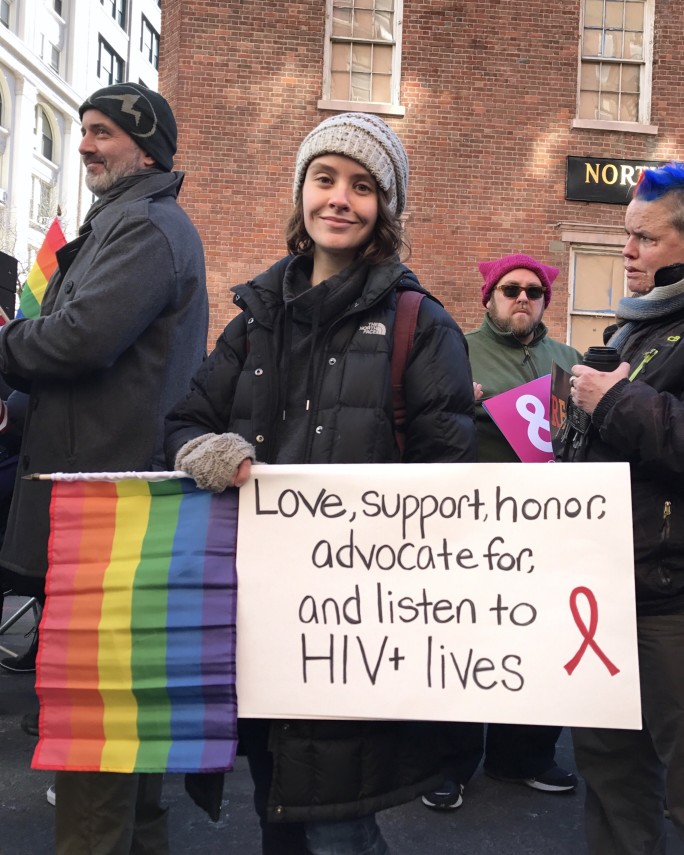
I volunteer for several HIV support organisations. Their funding and services keep being cut.
World AIDS Day, designated on 1st December every year since 1988, is an international day dedicated to raising awareness of the AIDS pandemic caused by the spread of HIV infection and mourning those who have died of the disease. Unfortunately, World AIDS Day will be held against the backdrop of the cutting of funding of HIV services in the UK which has been continuing for years with no end in sight. Indeed, things have become worse since the COVID-19 pandemic, which has now taken prominence when compared to HIV.
As someone who has worked and volunteered for HIV support organizations for many years in the UK, I have seen how a considerable number of people living with HIV struggle to cope with treatment and other psycho-social problems associated with the condition.
I am of the opinion that many people living with HIV or affected by HIV face huge everyday challenges due to the stigma associated with HIV. For example, someone living with diabetes can find it easier to openly inform friends and relatives of his/her health problem or diagnosis without any fear of stigma compared to someone who is living with HIV.
In my discussions with people living with HIV in many support settings, I have heard harrowing stories of how people living with HIV keep the condition as a secret even to their own family members due to fear of stigma. Many people living with HIV fear that if their condition is known by friends or relatives they would be shunned or ostracized. “Lady J”, who has lived with HIV for 18 years told me that when she came to the UK to claim political asylum after escaping political persecution from her country of birth some years ago, she lived in shared accommodation for a long time, and she had to face the daily challenge of making sure that her medication was properly hidden from her housemates due to fear of stigma or being judged if her housemates discovered that she was living with HIV.
It can be noted that despite the apparent current huge demand for support services for people living with HIV, many HIV support services nationwide have been closed in recent years due to lack of funding.
According to a report by the HIV commission, funding for the HIV treatment pathway comes from multiple sources. HIV treatment and clinical care is funded as part of the national NHS England budget, while many HIV (and other sexual health) prevention services are funded by local authority public health grants. While NHS England funded services continue to receive (much needed) increases in funding, the local authority public health grant has seen consistent cuts (14 percent in real terms between 2014-2018) and sexual health budgets have borne more of these cuts (being cut by 25 percent 2014-2018).
Unlike the NHS budget, public health (including sexual health) spending has not been protected and has been cut by £700 million in real terms since 2015. These cuts are already having an impact on sexual health services. In some parts of the country, lower staffing levels and reduction of sexual health advice and prevention activities threaten the progress achieved to date. Many services are also unable to meet demand.
The report quoted Dr Catherine Dodds, a senior lecturer in Public Policy in Bristol’s School for Policy Studies as saying, “the underfunding of community and public services at large make it even more difficult for many people on the margins to be resilient and exercise control over the direction of their own lives”.
Commenting about the underfunding issue, Tom Matthews, the co-founder and former trustee of ABplus, an HIV support organisation that was closed in Birmingham due to lack of funding some years ago said “I believe that the decision not to grant funding to ABplus was a decision to 'punish' people living with HIV, for having previously successfully challenged the council’s decision, a few years ago, to cease tendering for all support services, as HIV was now considered to be a chronically manageable disease. “I still find it difficult to accept that the council could make such a decision to the extent that the health and wellbeing of vulnerable adults was a price they were willing to pay”.
Tom Mathews mentioned that in addition to providing a drop-in service where people living with HIV were supported with information on good nutrition, the importance of exercising, mental health education, support with securing suitable accommodation, hardship funds and social welfare benefits, ABplus also ran a very successful food bank. “Given that most of our members were only able to identify as HIV positive, whilst at ABplus, we recognised that their ability to access a food bank would be severely limited. It was obvious that if disclosure of their HIV status was necessary in order to access food, then they probably would not be able to do that, hence we decided to include the food bank service to our weekly service,” Tom Matthews said.
According to my experience as I coordinated some projects at ABplus, some of the people living with HIV who visited ABplus were unemployed and experiencing other long term health conditions. The food bank was also a vital service due to the significant decline in economic activity spread across the national economy after the 2008 recession.
In his response to the issue regarding the importance of the food bank that was run by ABplus, Tom Matthews said it is recognised that good quality food is a vital part of every individual living with HIV and in many cases even more important than for a 'healthy' individual.
The theme of World Aids Day 2021 is “End inequalities. End Aids”. With a special focus on reaching people left behind, the World Health Organisation WHO and its partners are highlighting the growing inequalities in access to essential HIV services.

About the author
Selbin Kabote is a Zimbabwean-born Birmingham based journalist. Selbin has worked for many years as a media trainer in the UK. He worked with migrants and asylum seekers to arm them with the media tools that they need to speak in the media and in public life. The tools also enable them to create their own media platforms for the purpose of telling their stories.
Before coming to the UK many years ago, Selbin worked as a Sub-Editor for the Zimbabwe Broadcasting Corporation-ZBC in Zimbabwe and as a journalist producer for the external broadcaster of the South African Broadcasting Corporation - Channel Africa in Johannesburg, South Africa.
Selbin is an activist who believes in the power of highlighting positive arguments for migration as he is of the strong opinion that many migrants who come to settle in the UK have the will and capacity to make the country a great place.
This article is part of our Voices of the Economy series. The project brings together the economic experiences and opinions of people from a range of different backgrounds and showcases voices which are not heard as often when we talk about the economy. To find out more and share your own story, click here.



